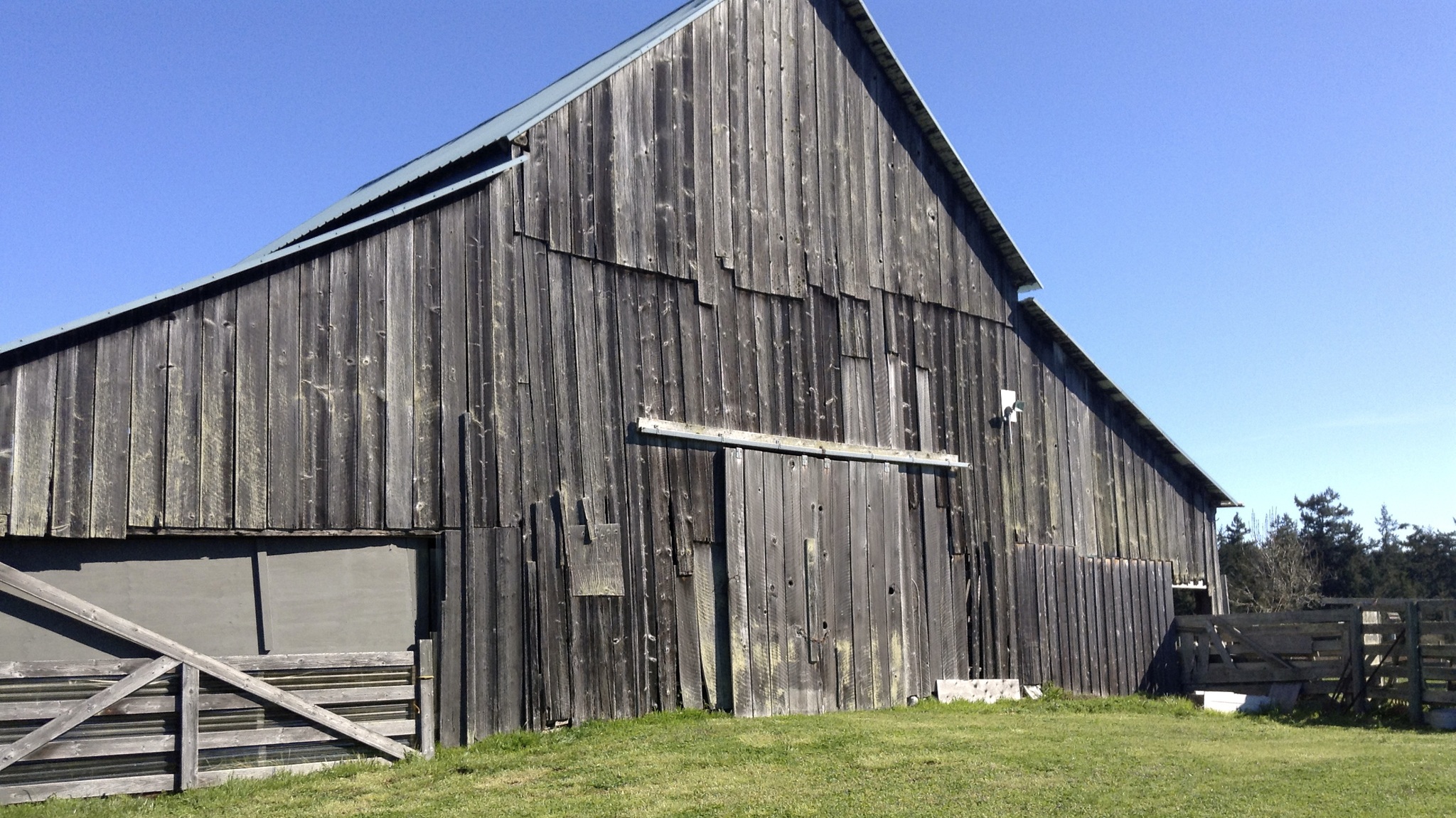By Rhea Miller
Special to The Weekly
A leader from one of the Salish Sea islands said to a group of us, “our island has lost its rural character, but kudos to Lopez. You still have a sense of rural character.”
What makes a place rural? My dad was a rural preacher in Iowa, and we’d go visit the people in his congregation, which were mostly farmers. As long as they weren’t haying, the farmers would stop what they were doing, invite us in, and inevitably share a meal. I had no idea then how much work went into that fried chicken with fresh-shelled peas, since I got my chicken de-feathered and my peas shelled from the grocery store. Nor did I understand what it meant to be home every morning and evening to milk the cows, but I did understand what it meant to be welcomed with hospitality and good food.
The average age of a farmer in San Juan County is 62. Most farmers have no plans for the next generation to farm their land. Who will farm? Who can afford a farm? Will we be able to stay rural?
I saw two articles on the same day saying cockroach milk is the future superfood and Soylent is the food for techies, advertised as affordable food, a meal replacement, a liquid or powder containing all you need in nourishment. Really, is this where we are headed?
How can we keep working farms on the island? Lopez Community Land Trust has formed Lopez Island Farm Trust specifically to keep farms actively farmed and working farmers housed rurally
Farmland in San Juan County is being preserved but not always actively farmed. Repeated haying/mowing of preserved land doesn’t increase soil health and fertility, and offers little variety for our table. We’d like to invite a broader community response to help address succession farming.
Stonecrest Farm is currently owned by Cathy and Bob Clemens. They recently approached LCLT to purchase their historic farm.
In 1884, Chris Jensen jumped off a ship from Norway and settled 160 acres on Lopez Island. In 1902 the barn that still stands was built, and for 105 years Jensen’s extended family, including Otto and Donna Kjargaard, farmed this land. The Clemens purchased the farm in 1989, the same year LCLT was formed. They have reached their 80s, and farming is no longer possible. Like many farmers, their farms are their retirement funds, and they cannot give the farm away. At the same time they’d like to see the larger community benefit from their decades of hard work.
Cathy said over lunch one day, “You know we didn’t do a lot of other things. We always had one more project on the farm that we wanted to get done. It means a lot to us that all our hard work will be worthwhile, and able to be passed on and shared with the Lopez community.”
Holding farmland in trust with the expressed goal of active farming is the primary purpose behind Stonecrest Farm. LCLT has until Feb. 1 to raise another $190,000 and four years to raise the entire purchase price. The farm was appraised at $1.2 million and is being offered to the community at a $300,000 discount.
This is Lopez’s opportunity to invest in a thriving local food effort — an effort that includes continued fresh veggies, fruit, smoked and fresh meats and value added products, but never cockroach milk.
Lopezians love it when people say it can’t be done because each and every time Lopez goes out and does it, from affordable housing to the first in the country USDA approved mobile processing unit to one of the highest recovery rates of heart attack in the state.
So too we can make a significant impact for continued farming and nurture the ethic of rural hospitality. We have the power to build a beautiful future.
For further information on how you can help keep Lopez Island rural and purchase Stonecrest Farm, see: http://www.lopezclt.org/historic-stonecrest-farm-a-lopez-legacy-for-2016/ or call 360.468.3723. A farm tour for the public is planned for Sept. 17.



